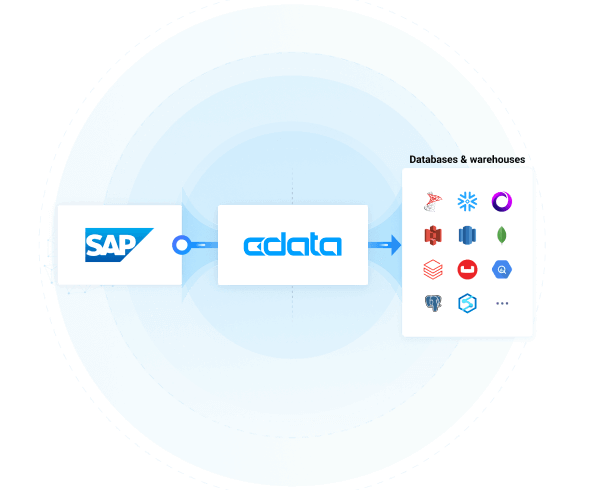Discover how a bimodal integration strategy can address the major data management challenges facing your organization today.
Get the Report →Connect to SharePoint Data in JRuby
Create a simple JRuby app with access to live SharePoint data.
JRuby is a high-performance, stable, fully threaded Java implementation of the Ruby programming language. The CData JDBC Driver for SharePoint makes it easy to integrate connectivity to live SharePoint data in JRuby. This article shows how to create a simple JRuby app that connects to SharePoint data, executes a query, and displays the results.
About SharePoint Data Integration
Accessing and integrating live data from SharePoint has never been easier with CData. Customers rely on CData connectivity to:
- Access data from a wide range of SharePoint versions, including Windows SharePoint Services 3.0, Microsoft Office SharePoint Server 2007 and above, and SharePoint Online.
- Access all of SharePoint thanks to support for Hidden and Lookup columns.
- Recursively scan folders to create a relational model of all SharePoint data.
- Use SQL stored procedures to upload and download documents and attachments.
Most customers rely on CData solutions to integrate SharePoint data into their database or data warehouse, while others integrate their SharePoint data with preferred data tools, like Power BI, Tableau, or Excel.
For more information on how customers are solving problems with CData's SharePoint solutions, refer to our blog: Drivers in Focus: Collaboration Tools.
Getting Started
Configure a JDBC Connection to SharePoint Data
Before creating the app, note the installation location for the JAR file for the JDBC Driver (typically C:\Program Files\CData\CData JDBC Driver for SharePoint\lib).
JRuby natively supports JDBC, so you can easily connect to SharePoint and execute SQL queries. Initialize the JDBC connection with the getConnection function of the java.sql.DriverManager class.
Set the URL property to the base SharePoint site or to a sub-site. This allows you to query any lists and other SharePoint entities defined for the site or sub-site.
The User and Password properties, under the Authentication section, must be set to valid SharePoint user credentials when using SharePoint On-Premise.
If you are connecting to SharePoint Online, set the SharePointEdition to SHAREPOINTONLINE along with the User and Password connection string properties. For more details on connecting to SharePoint Online, see the "Getting Started" chapter of the help documentation
Built-in Connection String Designer
For assistance in constructing the JDBC URL, use the connection string designer built into the SharePoint JDBC Driver. Either double-click the JAR file or execute the jar file from the command-line.
java -jar cdata.jdbc.sharepoint.jar
Fill in the connection properties and copy the connection string to the clipboard.

Below is a typical JDBC connection string for SharePoint:
jdbc:sharepoint:User=myuseraccount;Password=mypassword;Auth Scheme=NTLM;URL=http://sharepointserver/mysite;SharePointEdition=SharePointOnPremise;
Create a JRuby App with Connectivity to SharePoint Data
Create a new Ruby file (for example: SharePointSelect.rb) and open it in a text editor. Copy the following code into your file:
require 'java'
require 'rubygems'
require 'C:/Program Files/CData/CData JDBC Driver for SharePoint 2018/lib/cdata.jdbc.sharepoint.jar'
url = "jdbc:sharepoint:User=myuseraccount;Password=mypassword;Auth Scheme=NTLM;URL=http://sharepointserver/mysite;SharePointEdition=SharePointOnPremise;"
conn = java.sql.DriverManager.getConnection(url)
stmt = conn.createStatement
rs = stmt.executeQuery("SELECT Name, Revenue FROM MyCustomList")
while (rs.next) do
puts rs.getString(1) + ' ' + rs.getString(2)
end
With the file completed, you are ready to display your SharePoint data with JRuby. To do so, simply run your file from the command line:
jruby -S SharePointSelect.rb
Writing SQL-92 queries to SharePoint allows you to quickly and easily incorporate SharePoint data into your own JRuby applications. Download a free trial today!





